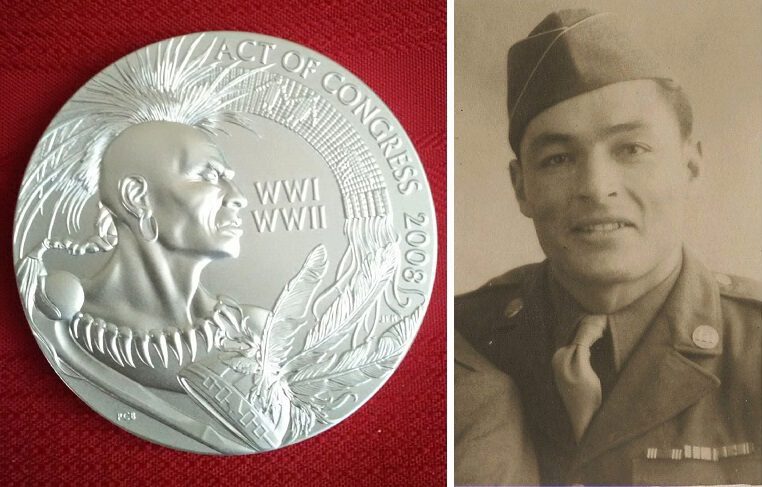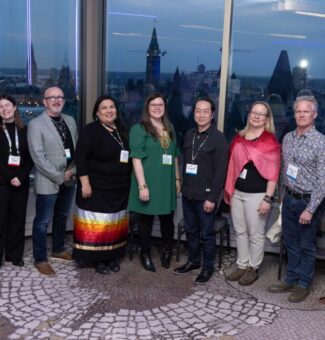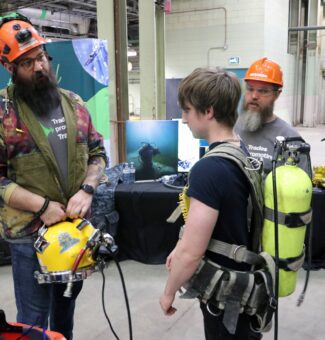Mohawk code talker recognized with congressional medal
For years, OPG pensioner Pat Oakes knew almost nothing about her father’s experience in World War II.
A former Senior Advisor of Indigenous Relations at OPG, Oakes believed that Alex Oakes – an Akwesasne Mohawk — served as a paratrooper in the U.S. Army’s 82nd Airborne Division. But in a surprise announcement in September 2015, his mysterious past was suddenly decoded.
“As it turns out, he was a Code Talker,” said Oakes. An elite group, the Akwesasne code talkers used the Mohawk language to transmit secret messages between units. Oakes’ father was stationed in France and the Netherlands, and received two Purple Hearts and a Bronze Star for Valor. He sadly passed away in 2008.
I had no idea about this part of his part. When I was a child, he would tell stories about the war. But he would never say anything specific, just that he was on secret missions. He never revealed what those missions were.Pat Oakes, former Senior Advisor of Indigenous Relations at OPG
In May 2016, the Code Talkers were honoured in a special ceremony held in Akwesasne, which straddles the CanadaU.S. border along the St. Lawrence River near Cornwall. Standing in her father’s place, Oakes was given one of 17 silver Congressional Medals. She was accompanied by Levi Oakes, her cousin and the last living Code Talker.

The Congressional medal is the highest award that can be presented to an individual by the U.S. Congress. The Akwesasne medals were specially made by the U.S. Mint to commemorate the Mohawk Code Talkers, and are adorned with icons of Mohawk culture.
“My father was a proud Mohawk speaker,” Oakes said. “We are so honoured and very proud of him and all the Mohawk Code Talkers and veterans who sacrificed a lot for our freedom.”
Oakes’ father’s contributions go beyond the war effort. After the war, he played a key role in the Akwesasne community. He became Grand Chief in the 1960s, leading the community with quiet compassion. He also formed a veterans group for disabled residents who had been involved in several conflicts, including WWII and the Vietnam War.
“He was a gentle giant, a big man but sensitive and caring,” said Oakes. “Community members would come in and talk and he would just listen. He really wanted to help them.”
Unwavering in his sense of duty, Oakes’ father never forgot his wartime experiences.
“When he was 76, he was invited by a four-star general to go to France,” recalled Oakes. “When he was leaving, he told the general he wanted to leave the same way he arrived more than 50 years ago. Wearing his army uniform, he marched seven miles through a nearby French town as residents waved and saluted him.”
A leader in her own right, Oakes is an active member of the Akwesasne and Indigenous community in Toronto. During her time with OPG, she coordinated OPG’s Native Circle, a support group for Indigenous employees.
Subscribe and stay informed
Sign up to receive the latest news, project updates, and event information from OPG.


